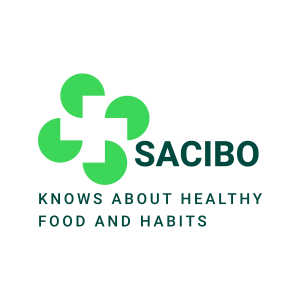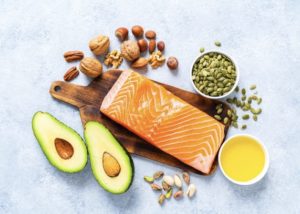- Home
- /
- Healthy Meal
- /
- Diets
- /
- The MIND Diet
- /
- The MIND Diet: Nourishing...
In today’s fast-paced world, where stress, unhealthy diets, and sedentary lifestyles have become the norm, maintaining a healthy mind is more important than ever. The food we eat plays a significant role in not only nourishing our bodies but also fueling our brains. One diet that has gained attention for its potential cognitive benefits is the MIND Diet. Developed by researchers at Rush University Medical Center, this eating plan combines elements of the Mediterranean and DASH diets, focusing on foods that are believed to promote brain health and reduce the risk of cognitive decline. In this article, we will explore the principles, benefits, and key components of the MIND Diet.
The MIND Diet, short for “Mediterranean-DASH Diet Intervention for Neurodegenerative Delay,” is a dietary pattern designed to prevent or slow down cognitive decline and reduce the risk of Alzheimer’s disease. The diet incorporates foods that have been shown to have a positive impact on brain health while avoiding those that may be harmful.
Key Components of the MIND Diet
- Whole grains: The MIND Diet emphasizes the consumption of whole grains, such as brown rice, whole wheat, oats, and quinoa. These grains are rich in fiber, vitamins, minerals, and antioxidants that support brain health.
- Leafy greens and other vegetables: Leafy greens like spinach, kale, and collard greens are particularly beneficial for brain health due to their high nutrient content. Additionally, a wide variety of other vegetables like broccoli, carrots, and Brussels sprouts are encouraged.
- Berries: Berries, especially blueberries, are considered a superfood for the brain. They are packed with antioxidants that help protect the brain from oxidative stress and inflammation, which are linked to age-related cognitive decline.
- Nuts and seeds: Healthy fats, such as those found in nuts and seeds, are essential for brain function. The MIND Diet encourages the consumption of almonds, walnuts, flaxseeds, and chia seeds, which provide omega-3 fatty acids and other beneficial nutrients.
- Olive oil: Olive oil, a staple of the Mediterranean diet, is a key component of the MIND Diet. It contains monounsaturated fats that are associated with a lower risk of cognitive decline and improved overall brain health.
- Fish: Fatty fish, like salmon, sardines, and trout, are rich in omega-3 fatty acids, which are essential for brain health. The MIND Diet recommends consuming fish at least once a week.
- Poultry: While the MIND Diet does not exclude other sources of protein, it suggests limiting red meat consumption and focusing more on poultry like chicken and turkey.
- Beans and legumes: Beans and legumes are excellent sources of fiber, protein, and antioxidants. They provide sustained energy and help stabilize blood sugar levels, supporting brain function.
- Wine (in moderation): The MIND Diet allows for moderate consumption of red wine, which is believed to have antioxidant properties and potential benefits for brain health. However, excessive alcohol consumption can have adverse effects, so moderation is key.
The Products to Limit or Avoid
The MIND Diet also emphasizes avoiding certain foods that may have a negative impact on brain health:
- Butter and margarine: High levels of saturated and trans fats found in butter and margarine are associated with increased cognitive decline and should be limited.
- Cheese: While the MIND Diet does not completely eliminate cheese, it suggests consuming it in moderation due to its high saturated fat content.
- Fried and fast foods: Deep-fried and highly processed foods often contain unhealthy fats, high sodium levels, and additives that can be detrimental to brain health. These foods should be minimized or avoided altogether.
- Pastries and sweets: Sugary treats like cakes, cookies, and candies should be consumed sparingly as they can contribute to inflammation and have negative effects on overall brain function.
- Red meat: While not completely off-limits, the MIND Diet recommends limiting the consumption of red meat, as it has been associated with a higher risk of cognitive decline. Instead, leaner sources of protein like poultry and fish are encouraged.
The Benefits of the MIND Diet
The MIND Diet is gaining recognition for its potential cognitive benefits and the promotion of brain health. Several studies have indicated that following the MIND Diet may:
- Reduce the risk of Alzheimer’s disease: The MIND Diet’s focus on nutrient-dense foods and its inclusion of specific brain-healthy ingredients has been associated with a reduced risk of Alzheimer’s disease and age-related cognitive decline.
- Improve cognitive function: The combination of foods rich in antioxidants, healthy fats, vitamins, and minerals may enhance brain function, memory, and cognitive abilities.
- Provide overall health benefits: The MIND Diet promotes a well-rounded, balanced eating pattern that aligns with principles of healthy eating. It can help maintain a healthy weight, support heart health, and reduce the risk of chronic diseases such as diabetes and hypertension.
- Enhance mood and mental well-being: The nutrients found in the MIND Diet have been linked to improved mood, reduced symptoms of depression, and overall mental well-being.
- Promote longevity: A diet that supports brain health and overall well-being can contribute to a longer, healthier life.
The Tips for Incorporating the MIND Diet into Your Lifestyle
If you’re interested in following the MIND Diet, here are some practical tips to help you incorporate its principles into your lifestyle:
- Plan and prepare meals: Design a weekly meal plan that includes a variety of brain-healthy foods. Prepare meals in advance to ensure you have nutritious options readily available.
- Stock up on brain-healthy ingredients: Fill your pantry and refrigerator with whole grains, leafy greens, berries, nuts, seeds, olive oil, fish, poultry, and beans.
- Experiment with recipes: Explore new recipes that incorporate MIND Diet foods. There are numerous cookbooks and online resources available that provide delicious and creative ideas for brain-healthy meals.
- Be mindful of portion sizes: While the MIND Diet emphasizes nutrient-rich foods, portion control is still important for maintaining a healthy weight and overall health.
- Stay hydrated: Don’t forget to drink plenty of water throughout the day to support optimal brain function.
- Stay physically active: Regular exercise complements a healthy diet and contributes to overall brain health.
- Seek professional guidance: If you have specific dietary concerns or health conditions, it’s always a good idea to consult with a registered dietitian or healthcare professional who can provide personalized guidance and support.
Potential disadvantages or risks
While the MIND Diet is generally considered a healthy and balanced eating plan, it’s important to be aware of potential disadvantages or risks associated with any dietary approach. Here are a few considerations to keep in mind:
- Strict adherence and sustainability: The MIND Diet, like any specific diet, may require strict adherence to its guidelines, which can be challenging for some individuals. It may be difficult to maintain long-term compliance, especially if the diet limits or eliminates certain foods that are personal favorites or cultural staples.
- Individual variations and customization: Every individual is unique, and what works for one person may not work for another. While the MIND Diet provides general guidelines for brain health, it’s important to consider your specific dietary needs, preferences, and any underlying health conditions. Consulting with a healthcare professional or registered dietitian can help you tailor the diet to your individual needs.
- Potential nutrient deficiencies: Although the MIND Diet promotes nutrient-rich foods, strict adherence without careful planning may lead to potential nutrient deficiencies. For example, if certain food groups are restricted or eliminated, such as dairy products or certain meats, it’s important to find alternative sources of essential nutrients to ensure a well-rounded diet.
- Dietary restrictions and social implications: Following a specific diet like the MIND Diet may pose challenges in social situations or when dining out. It may be difficult to find suitable options when attending events or eating at restaurants that do not cater to specific dietary preferences or restrictions. This can sometimes create feelings of exclusion or make it challenging to maintain the diet in certain social settings.
- Lack of conclusive scientific evidence: While the MIND Diet incorporates elements from the Mediterranean and DASH diets, both of which have shown positive health benefits, it’s worth noting that the MIND Diet itself is a relatively new concept. Further research is needed to establish conclusive evidence regarding its effectiveness in preventing cognitive decline or reducing the risk of Alzheimer’s disease.
Conclusion
The MIND Diet offers a comprehensive approach to nourishing the brain and reducing the risk of cognitive decline. By incorporating nutrient-dense foods, limiting potentially harmful ingredients, and adopting a healthy lifestyle, you can promote brain health and overall well-being. Remember, the MIND Diet is not a quick fix, but a long-term commitment to nourishing your brain for a healthier future.
































































0 Comments